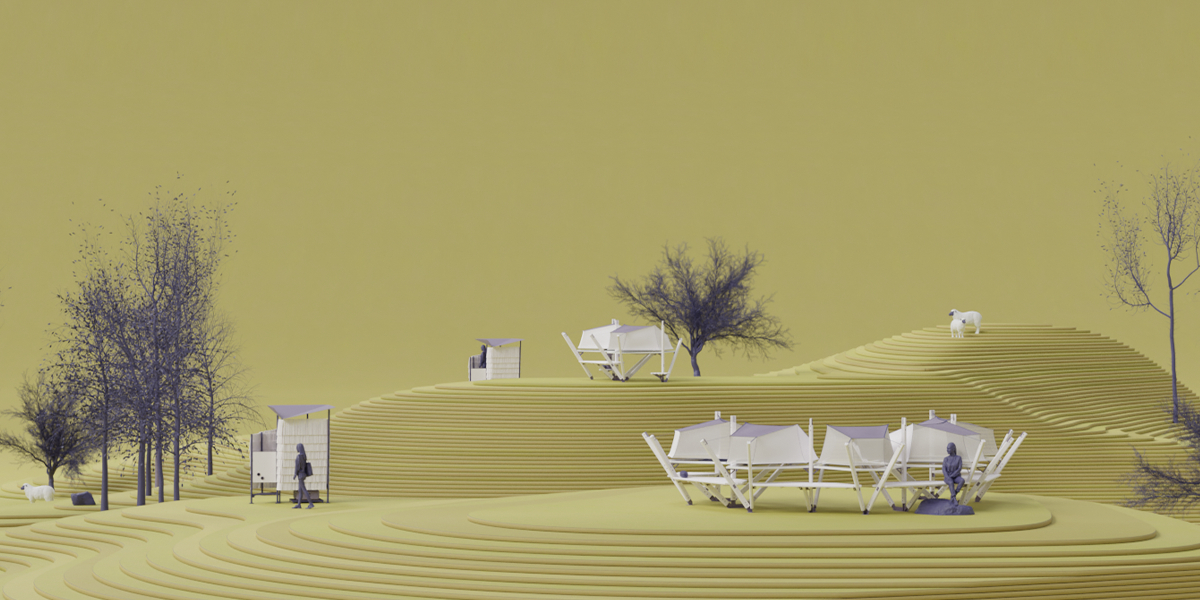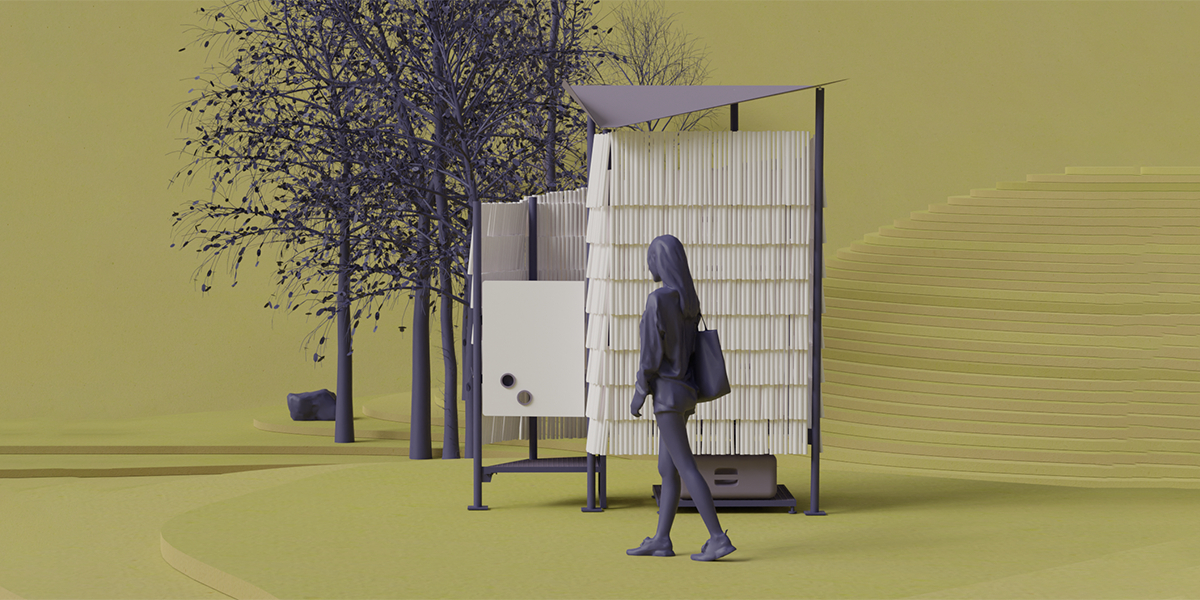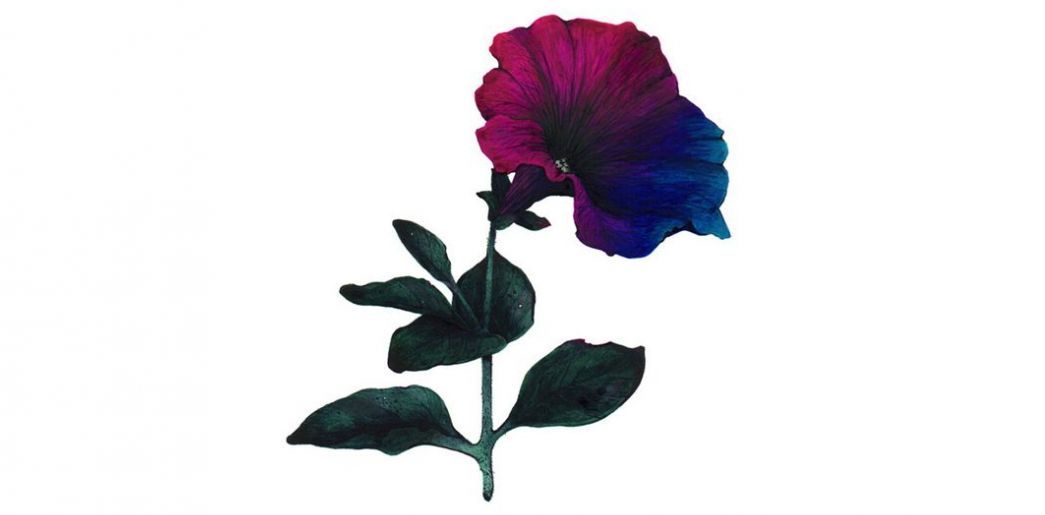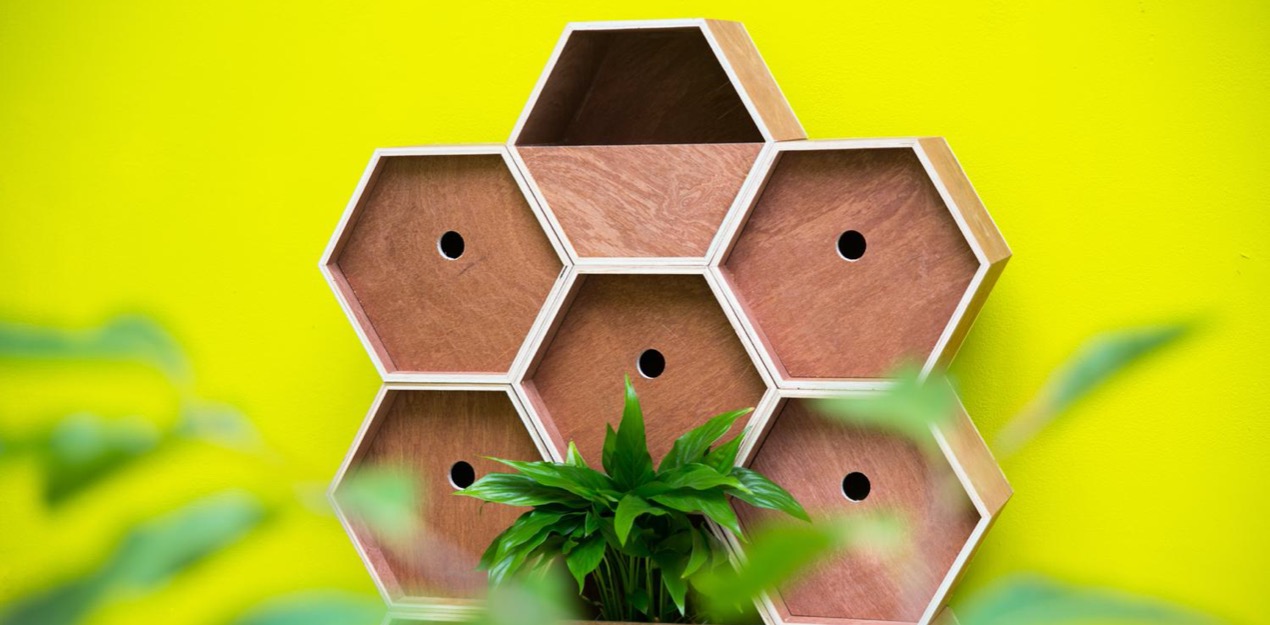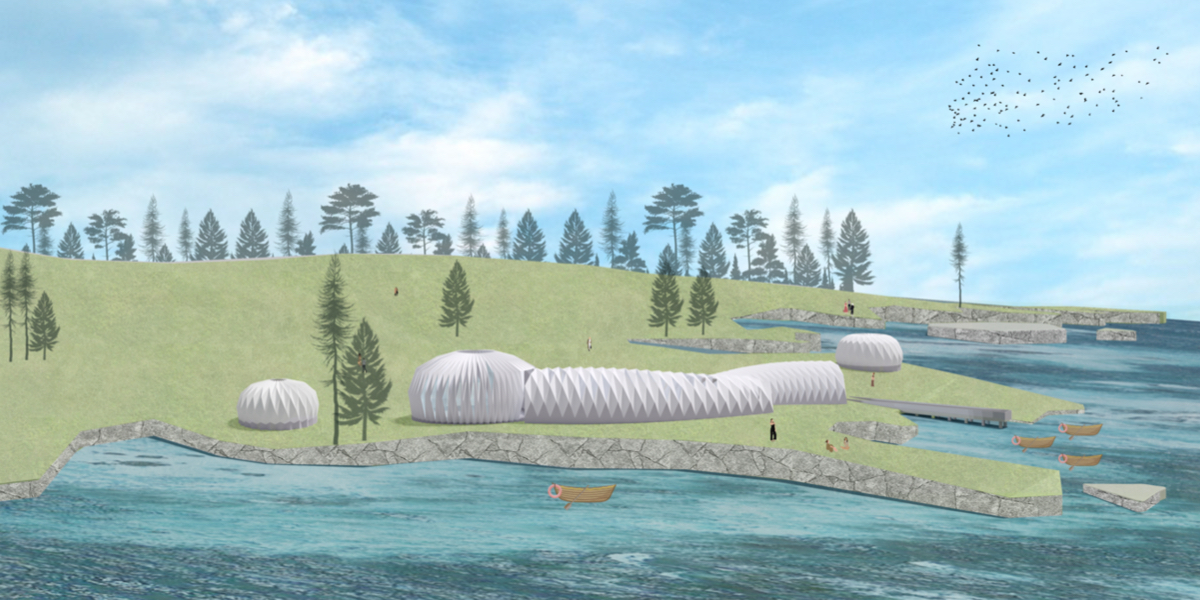AWARD YEAR
2023
CATEGORY
Community
GOALS
Good Health & Well-being, Clean Water & Sanitation, Industry, Innovation & Infrastructure, Responsible Consumption & Production, Sustainable Tourism
KEYWORDS
sustainable tourism, sustainable sanitary, access to nature, circular economy, Local production
COUNTRY
Germany
DESIGNED BY
Olga Turiel, Thea Griep, Anne Mack
WEBSITE
https://instagram.com/bivac.design?igshid=YmMyMTA2M2Y=
Bivac
Nachtfalter and Schneckenhäuschen are a place for sleeping and a minimal toilet for nature reserves.
How does it work?
Nachtfalter is a place to sleep that is more than a bivouac and less than a hotel room. Hikers can sleep in the middle of the reserve without having to bring their own tent. The modular construction consists of 1 to 8 sleeping units, each accommodating 1 to 2 people. The wood and steel construction holds a net that acts as a sleeping surface. The tent is made of waxed cotton. It can be left open at the sides to provide shelter from the rain and wind when needed.
Schneckenhäuschen is a "minimal toilet". It is designed to be set up next to hiking trails. It is not intended to meet all the requirements of an urban sanitation facility, but rather to provide no more than the bare minimum. It allows people to go to the toilet instead of having to relieve themselves in the forest, as is currently the case. We have developed a squat toilet that has a system for the separation of liquid and solid waste. This helps to reduce bad odours and the faeces can be removed and reused elsewhere.
Why is it needed?
Increasing tourism is a challenge for biosphere reserves in Germany and elsewhere. The project provides solutions to maintain the balance between nature conservation, rural economy and the freedom to explore and enjoy nature. The project focuses on two particularly pressing issues: overnight accommodation and sanitary facilities along walking trails. Hotels and guesthouses are often booked out weeks in advance, and campsites and toilets are rare. As a result, many tourists camp in the fields. Despite their good intentions, this is not good for conservation. Nachtfalter and Schneckenhaus are tools that enable biospheres to manage tourist occupancy and respond to changing demand, while providing shelter and toilets for hikers in close contact with nature.
How does it improve life?
The {name} improves access to areas of high conservation value. Biosphere and nature reserves are an important institution to protect nature in a time when nature is being destroyed for economic reasons. But nature is best protected when there are no people around.
On the other hand, access to nature is necessary for people to understand it and develop the incentive to protect it. It also helps to balance the mind and soul, to maintain mental and physical health.
For economic and environmental reasons, many tourists are increasingly choosing to spend their leisure time rediscovering the landscapes close to home, rather than flying away on holiday.
Local community is key! We have been in close contact with residents, mayors and associations in the Rhön. Tourism that is sustainable and strengthens local communities is much needed, which is why the {name} is designed to be integrated into the local infrastructure and economy.
